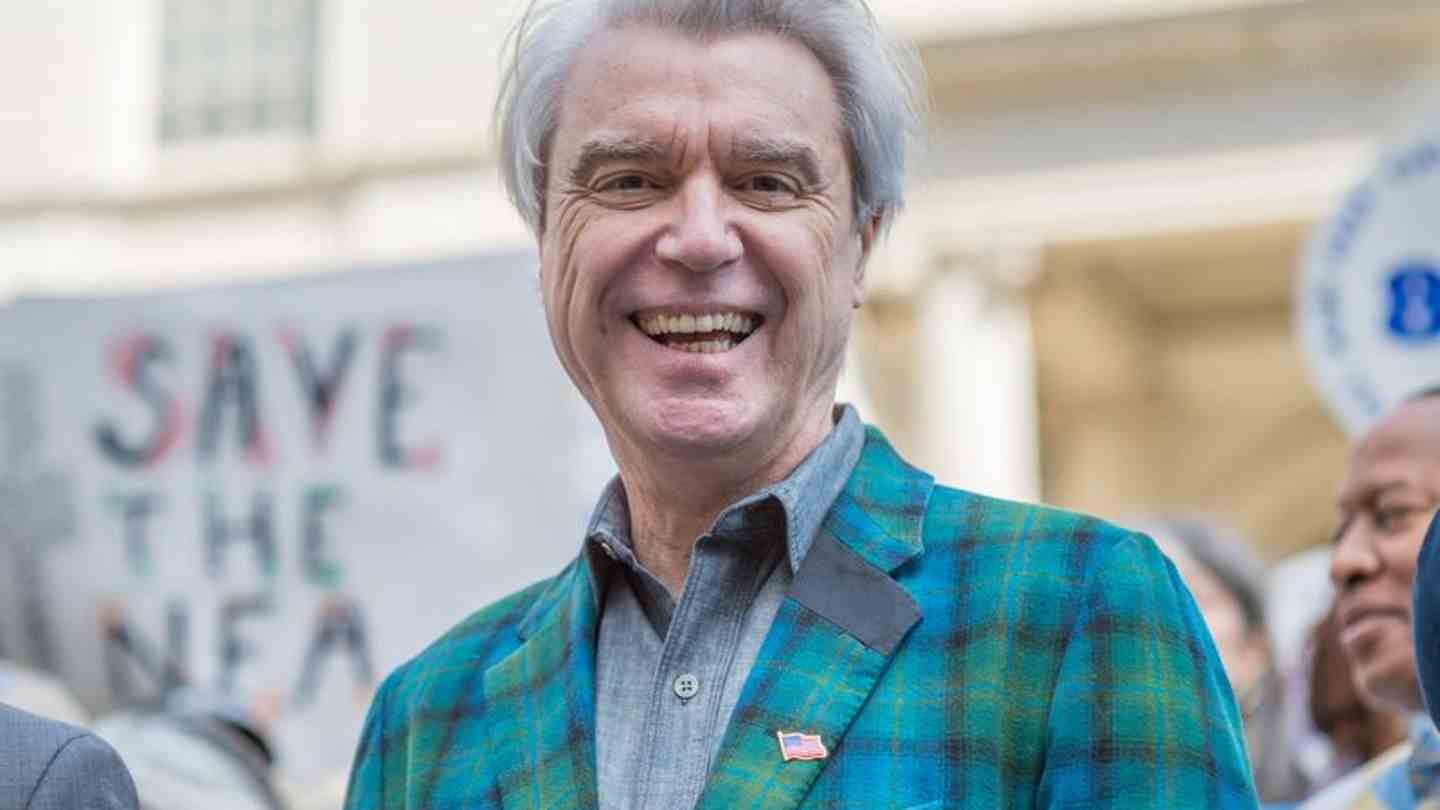Restless pop genius
Talking Heads singer David Byrne turns 70
Talking Heads singer David Byrne turns 70. Photo: Albin Lohr-Jones/Pacific Press via ZUMA Wire/dpa
© dpa-infocom GmbH
He wrote innovative pop songs like “Psycho Killer”, “Burning Down The House” or “Road To Nowhere”. David Byrne rose to fame as the frontman of Talking Heads.
Last year, David Byrne received a Tony Award, the most important theater and musical prize in the USA, for his Broadway show “American Utopia”.
Because the production, which is based on one of his solo albums, could not be assigned to any category, there was the Special Tony, a special award from the committee. Typical Byrne – the jack-of-all-trades and former Talking Heads frontman has always been so versatile artistically that he could hardly be pinned down to one style. Byrne is now 70 years old.
In addition to songs from Byrne’s album of the same name, “American Utopia” also includes other solo songs by him as well as various songs by the Talking Heads. “I feel like some people in the audience don’t know my music at all, which is good for me,” Byrne said in an interview with the New York Post. “It means I have to work hard to convince them and we have to put on a good show that doesn’t rely on people being Talking Heads fans or anything.”
They started out as the opening act for the Ramones
The band was founded in 1975 in New York City by Byrne – who was born in Dumbarton, Scotland in 1952 but moved to Canada and then the USA with his parents as a child. Today, the Talking Heads are still among the most influential groups of the post-punk and new wave encounter. Songs like “Psycho Killer”, “Once In A Lifetime” and “Burning Down The House” are pop classics.
The quartet had its first appearance as the support act for the Ramones in the legendary New York concert club CBGB, which the Talking Heads also sang about in «Life During Wartime». Her debut album, for which David Byrne wrote all the songs except for “Psycho Killer”, was released in 1977 under the minimalist title “Talking Heads: 77” with an equally simple album cover.
Sound genius Brian Eno produced “More Songs About Buildings And Food”, “Fear of Music” and “Remain In Light” in the three years that followed. Influences from pop, funk, punk, art rock and elements of world music were found in the minimalistic songs. Byrne sang and spoke in a peculiar way that was somehow nervous and hectic, yet also ironic. The music video for Once In A Lifetime, directed by Byrne and Toni Basil, is iconic, in which the singer performs strange dance moves in a suit, bow tie and glasses.
After a short break – Byrne recorded his first solo album “My Life In The Bush Of Ghosts” with Eno and other renowned musicians in 1981 – the Talking Heads came together again for “Speaking In Tongues”. It marked the commercial breakthrough for the four. The concert film “Stop Making Sense” by director Jonathan Demme (“The Silence of the Lambs”) and a live album under the same name were also released.
After eight studio albums it was over
The single “Road To Nowhere” from the sixth studio album “Little Creatures”, which is also the band’s most successful, was particularly successful in Europe. But there were tensions. Drummer Chris Frantz reported in his autobiography that the demanding Byrne wanted to break up the band in the early 1980s. In 1991, after eight studio albums, it was actually over, even if, according to Frantz, the other talking heads at the time assumed that the separation was only temporary.
To this day, Byrne is on the road in a variety of ways – literally. He rides his bike a lot and is committed to better conditions for cyclists. The father of one daughter, who is now also a grandfather, also wrote a book about cycling (“Bicycle Diaries”). The restless artist has released more than a dozen solo albums and composed various soundtracks for films, series and plays. A new book with drawings and poems by Byrne was only published in February.
After the breakup, the Talking Heads were only on stage together once. Upon induction into the Rock and Roll Hall of Fame, David Byrne and his former musical collaborators performed three songs together. It is almost impossible that there will be a long-term reunion at some point. “I don’t think so,” Byrne told the New York Post last year. “It’s been a long time and our paths have somehow parted.”

